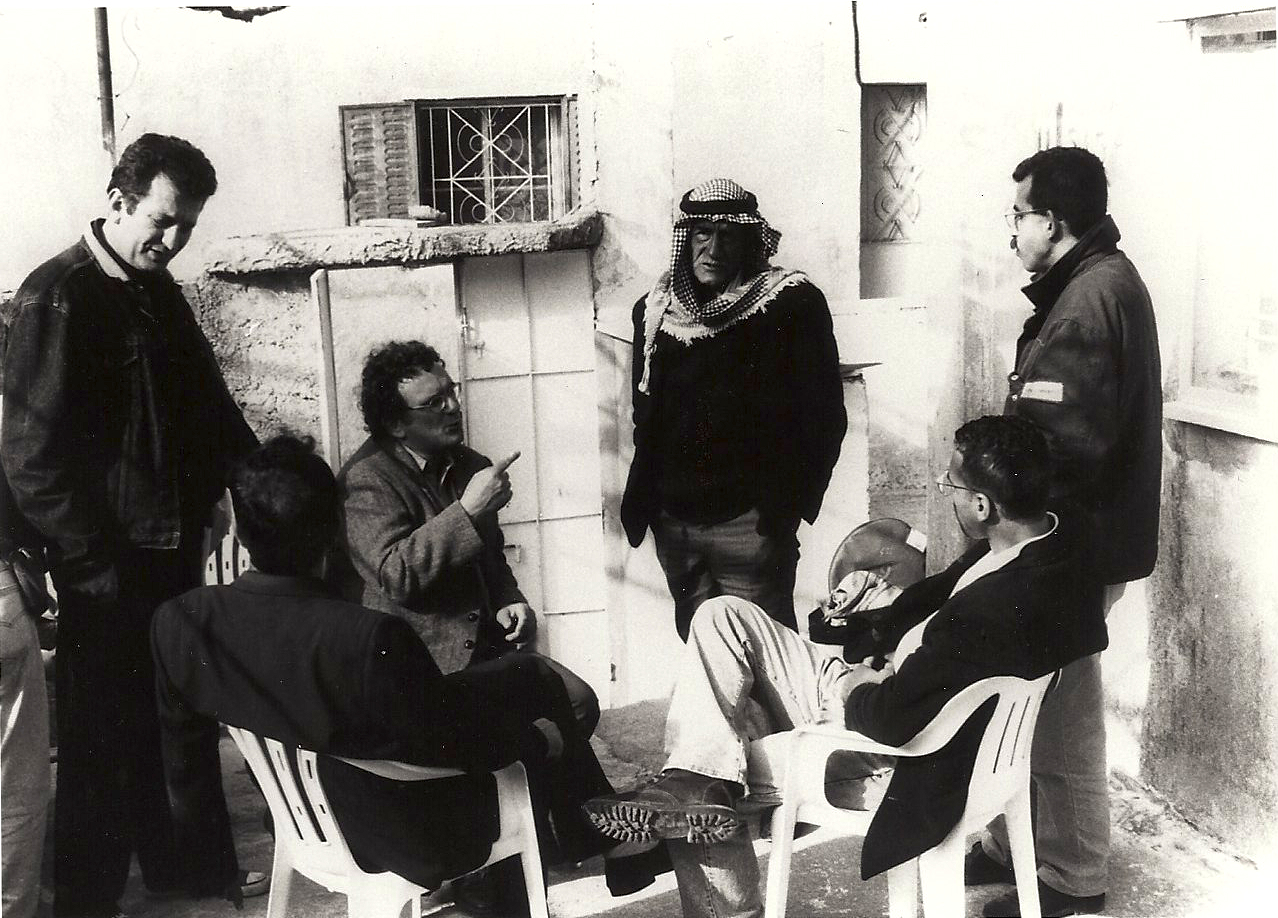Guest post by Cyanne Loyle and Alicia Simoni

Political scientists debate whether the world is getting more violent or less. Regardless of where you situate yourself in this discussion, it does seem that social scientists are putting themselves into more violent situations than ever before. Especially within the field of political violence and conflict studies, students and scholars travel to active conflict and post-conflict areas, interview and interact with people who experienced high levels of violence, witness violence and potentially experience violence targeted at them. In addition to direct experiences with violence, many of us spend hours, often alone in our offices, reading genocide perpetrator testimonies, personal stories of sexual violence, or State Department reports cataloging years of crime and abuse.
These are all experiences capable of producing psychological trauma, yet as a field we rarely engage with the implications of this trauma for our work or ourselves. Many of us have preconceived ideas about what trauma is and remain doggedly convinced that what we study isn’t that bad, that what we’ve experienced isn’t as distressing as what others have, or that what we are feeling is nothing really. Yet, the evidence suggests otherwise.
What is psychological trauma?
A person is considered to have experienced a traumatic event when they have been exposed to death, threatened death, actual or threatened serious injury, or actual or threatened sexual violence in one of the following ways:
- direct exposure,
- witnessing in person,
- awareness that someone close to you was exposed,
- repeated or extreme indirect exposure to averse details of the event(s).
The normal response to such traumatic events is psychological and physical distress.
Why don’t we talk about this?
It is rare for a social science department or working group to have a serious discussion about fieldwork/research-related trauma. It is even less common for researchers to debrief once they return from the field or complete a project. This leads to a number of faulty assumptions about trauma and what it would mean to acknowledge its impact on us and on our work.
True or False: Scientists are immune to trauma.
False. Social science researchers can and do experience trauma. Have you or someone you know returned from fieldwork in a conflict zone, completed a series of intense interviews, or emerged from weeks of reading brutal testimonies and experienced some or all of the following: feeling “revved up;” fatigue; irritability; hyper-vigilance; increased emotionality; problems sleeping; exaggerated startle response; change in appetite; feeling overwhelmed; impatience; withdrawing from family and friends? These are among the assorted responses that normal people, including scientists, have to traumatic situations.
True or False: You need to experience active combat or direct violence to be traumatized.
False. Most researchers believe that what they have experienced has little in common with what the victims or perpetrators of active combat or direct violence have experienced. While this is true to some degree, it does not mean that we cannot be similarly traumatized. What determines if an event is traumatic is not proximity or even severity; it is the sense of powerlessness and of being overwhelmed that accompanies experiencing, witnessing, or being indirectly exposed to violence, death, or brutality that makes a situation traumatic. You don’t have to work in a conflict zone to feel this way.
True or False: Experiencing trauma will negatively affect your research.
Maybe. Trauma influences the way that we perceive, consume and ultimately evaluate information. It can have an impact on how we conduct research and how we analyze it. Trauma can also have indirect impacts on our research such as our ability to concentrate and interact with others. This impact is present whether or not we acknowledge it.
True or False: Addressing your distress can benefit you and your research.
True. Most people are able to recover from the effects of a traumatic event. However, it is difficult to recover in isolation. The ability to accept support and help — from family, friends, colleagues, and/or professionals — is essential to resolving the impacts of trauma and, often times, to being able to effectively and efficiently continue your research.
Identifying the signs of trauma
Common signs of distress in response to a traumatic event include:
- Intense or unpredictable feelings: Perhaps you feel noticeably anxious, nervous, or overwhelmed. You may also be more irritable or moody than usual.
- Changes to thoughts and behavior patterns: You might have persistent, vivid memories of the event. Your sleep and eating patterns may be disrupted. It may also be difficult to concentrate or make decisions. You may procrastinate working on a project related to your traumatic experience.
- Sensitivity to environmental factors: Loud noises, burning smells, or other environmental sensations may create heightened anxiety.
- Strained interpersonal relationships: Perhaps you are experiencing increased conflict, such as more frequent disagreements with family members and coworkers. You might also become withdrawn, isolated or disengaged from your usual social activities.
- Stress-related physical symptoms: Headaches, nausea and chest pain may occur. Preexisting medical conditions can also be affected by trauma-related stress.
What to do if you’re experiencing trauma
If you identify the above signs there are a number of steps that you can take:
- Take a break from the material you are working on. Use this opportunity to either move onto a non-related project or to spend some time with friends and family to give your mind some distance.
- Talk about your experiences with friends or colleagues who have worked in similar environments.
- Exercise, eat well, and get outside.
- Seek professional help. Particularly on university campuses you are likely to have members of the counseling team who specialize in research-related trauma. Seek them out or see if they have recommendations for other resources in your area.
Let’s start talking about this
It is our responsibility as teachers and colleagues to engage with the possibility of trauma for ourselves, our students, and our research teams. We would all benefit from pre- and post-research discussions about research related trauma being more commonplace. Each of us can make sure that our students and research assistants are aware of the signs of trauma and can give them guidance as to how to seek help if needed. As members of academic departments, let’s ensure that trauma and its impact are addressed within the curriculum and training that prepares future researchers for this work.
Cyanne E. Loyle is an Assistant Professor of Political Science and International Studies at West Virginia University. She has worked with research teams in a number of conflict and post-conflict countries including Rwanda, Uganda, Northern Ireland, Turkey and Nepal. Alicia Simoni, MA, LMSW is a psychotherapist with a specialty in trauma. Prior to pursuing a career in psychotherapy, she worked in the field of international peace studies and spent time in several conflict and post-conflict settings, including Afghanistan, Northern Uganda, and Northern Ireland.






4 comments
I have worked in a conflict-affected area for the last 20 years. In my opinion, all researchers – and all others working in such areas – should be required to have psychological supervision at very regular intervals. This is not a luxury. Unfortunately, we see the lack of such supervision – and the consequences – all too often.
Furthermore, there is the danger of pre-traumatization of the subjects of the study. There need to be strict protocols to ensure that this doesn’t happen, and that assistance is be given when it does. Furthermore, in our experience, cultural and local factors are not taken into account during social science studies in conflict and post-conflict areas. In our opinion, this vastly decreases the value of the research. I must note that in this area, that is, the Western Balkans, many people who would be evaluable subjects of research simply refuse to take part in it. Also, many NGOs refuse to work with researchers for the reasons noted above. This is a shame, as such research is very badly needed.
Charles David Tauber, M.D.
Head of Mission for Southeast Europe
Coalition for Work with Psychodrama and Peace
Thanks very much for writing this post. I hope it encourages more openness around these issues.
Very important and very relevant. Especially now. Thank you for raising this issue.